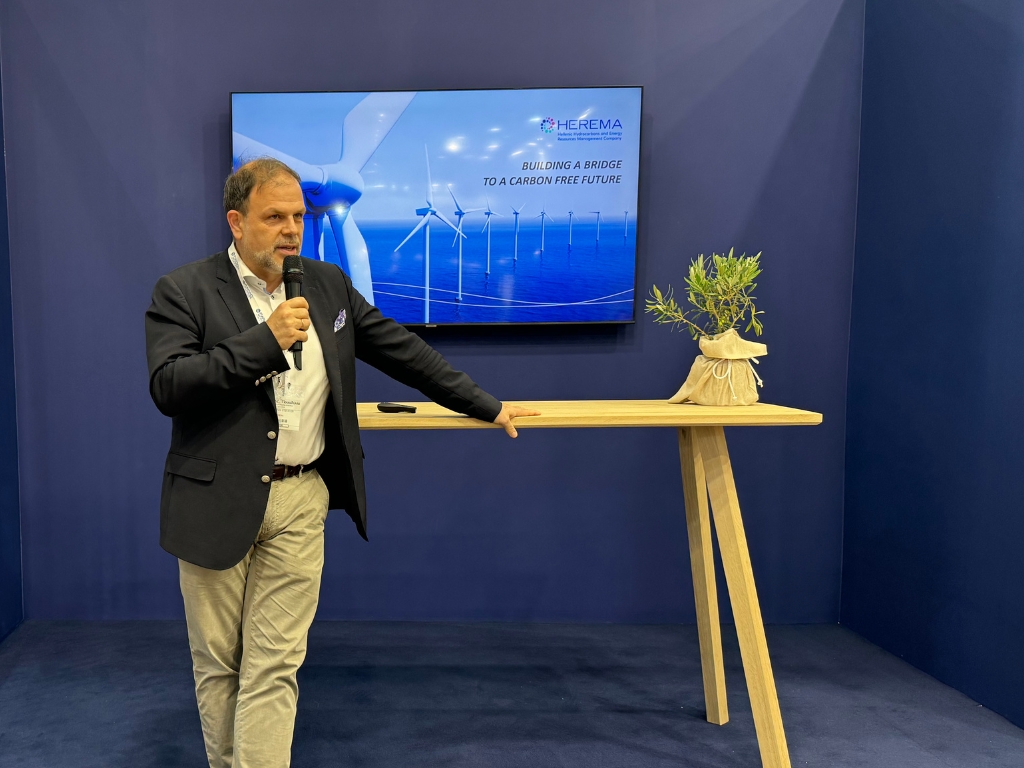The CEO of Hellenic Hydrocarbons and Energy Resources Management Company (HEREMA), Aristofanis Stefatos, represented the organization at the International Shipping Exhibition “Posidonia 2024,” held in Athens on 3-7 June.
Mr. Stefatos participated at the Expert Talks event “Offshore wind farms (OWF): Boosting Greece’s energy transition,” organized by DNV, where he elaborated on the key role and prospects of Greek shipping from the development of offshore activities in Greece, stating that OWF, the exploration and production of hydrocarbons, as well as carbon capture and storage of (CCS) comprise a new offshore industry worth billions of euros.
More specifically, in his presentation Mr. Stefatos noted that:
-For the installation of just the first pilot offshore wind parks (bottom-fixed, 600 MW) off the coast of Alexandroupolis, it’s estimated that between 18 and 25 different types of ships will be needed – from Crew Transfer Vessels (CTVs) to Cable Laying Vessels (CLVs) and Floating Foundation Installation Vessels (FFIVs).
-An even larger number of craft will be needed to install the floating offshore wind parks under development, comprising 85-130 turbines producing 1,300 MW.
-Specialized craft will be needed to support the Greek hydrocarbons exploration and production program – from Seismic Vessels (SVs) and Mobile Offshore Drilling Units (MODUs) to Floating Production, Storage and Offloading vessels (FPSOs).
-Also presenting significant opportunities for Greek shipping is CCS, a sector that could reach up to 6 bn. euros, for the service of which (transfer of CO2 produced by Greek industries to designated storage facilities – either in Greece or abroad) a large number of craft and dozens of trips will be needed per year.
The HEREMA CEO summarized saying that “in the years to come, a significant shipping, industrial and offshore activity will be developed in Greece that will request the shipbuilding of all kinds of new craft.”
He concluded by highlighting the critical role that Greek ports will have to play in each of the above activities. They constitute a fundamental link in the offshore supply chain, comprising multiple financial and productive sectors – from shipyards, ports and shipping companies to the metallurgy industry, cables production, logistics companies, etc.
